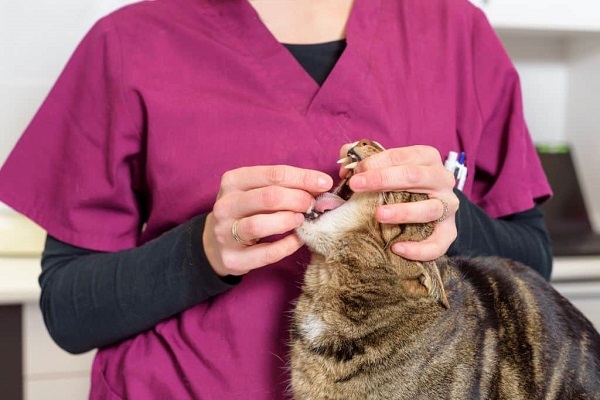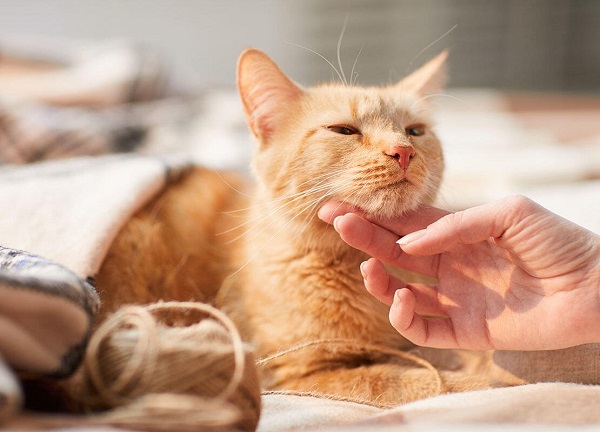Deworming cats naturally has many benefits. Many pet cats may get infected with intestinal parasites and may not even show any symptoms. Kittens are more likely to get infested, as they have weak immune and gastrointestinal systems. They can become infested with such harmful worms by eating feces, fleas, or coming in contact with dead animals, or eating spoiled food.
The prevalence of intestinal parasites in cats is said to be around 41%, with the Toxocara cati being the most prevalent parasite species.
While there are many treatments available for this problem, you might want to know if there are any natural remedies that can help.
Keep reading to find out easy solutions for deworming cats naturally!

Home Remedies for Deworming Cats
At some point in life, many pet cats can become infected with harmful parasites. Depending on the quality of living and surroundings, kittens can also often get parasites that can seriously affect their health.
Parasites such as roundworms, tapeworms, and hookworms are some of the common ones that can attack felines. While vets may prescribe some medication or even advise for surgery, some people try deworming cats naturally with various forms of home remedies.
Here are some easy-going solutions that can help in deworming cats naturally.
1. Pumpkin Seeds
In recent past years, herb doctors have found that pumpkin seeds can work as a powerful deworming treatment in cats and dogs. Thanks to the amino acid contained in the pumpkin seeds, called cucurbitacin, known for paralyzing and eradicating the harmful parasites from the digestive tract of the animals.

Raw, organic pumpkin seeds have been used to treat different types of worms in cats, including — tapeworms and other intestinal parasites. Likewise, feeding pumpkin seeds to deworm your cat can be a good idea. You can feed them in moderation to your cat as a daily treat, either by feeding them plain or grinding them and adding them over cat food.
Consider adding one teaspoon of raw pumpkin seeds (plain) per 10lbs of cat body weight, twice a day. This can considerably help in deworming cats naturally and easily.
NIH states, “Gastrointestinal parasitism is one of the main causes of morbidity in domestic cats.“
2. Apple Cider Vinegar
Recently, there has been a surge in the popularity of apple cider vinegar for the health benefit that it carries for humans. Moreover, apple cider vinegar has also shown some effective results for treating worms in cats.
It is indeed true that apple cider vinegar can kill many harmful worms in cats. And unlike other types of vinegar, apple cider vinegar increases the alkaline levels in your cat’s intestine, which — as a result — becomes inhospitable for many types of parasites and worms.
Add one or two teaspoons of apple cider vinegar in a glass of lukewarm water and feed it to your cat regularly for at least a week.
However, the effectiveness of apple cider vinegar for deworming cats naturally remains highly debatable. Thus, you should consult your veterinarian for your specific situation.
3. Coconut Oil
Did you know that coconut oil’s health benefits also extend to our furry friends? It can help in deworming cats naturally, including the elimination of worms such as tapeworms, giardia, and other parasites in your cat when given regularly.

It is known that when coconut oil is given to your cat, the body transforms lauric acid into monolaurin, which has been known as an effective treatment for various parasites in cats.
You can give coconut oil to your cat by sprinkling it on regular cat food. For an average-size cat, ¼ to ½ teaspoon of coconut oil once or twice a day is suitable.
4. Food Grade Diatomaceous Earth
Food grade diatomaceous earth, also known under the name of fossil shell flour, is another effective natural remedy for treating cats with worms. It is a well-known food grade used by breeders and farmers. They not only use it as a dietary aid in pets but also as an effective agent that helps in deworming cats naturally.
You can buy food grade diatomaceous earth from a nursery, or you can also easily get it from an online shop. It works by absorbing the lipids from the insects, and this as a result kills them by the way of dehydration.
To use it, you can add ½ teaspoon into a regular can of wet cat food. Likewise, you can also mix it with dry cat food also. Since it does not have any distinct taste, your cat won’t be able to notice it.
5. Carrots
Carrots are some of the widely-used vegetables that are a great source of vitamin A. And surprisingly, carrots can help your cat with the worms. Likewise, coarsely chopped carrots can help your cat in getting rid of the intestinal worms, as they scrape the insides of your cat’s intensities.

Carrots should not make up a significant part of your cat’s diet. However, it is perfectly safe to feed carrots in moderation as a treat, so deworming cats naturally is feasible with this vegetable.
6. Chamomile
Chamomile is another great solution for deworming cats naturally. Moreover, it is well known for its soothing characteristics, meaning it can help with any bloating or inflammation resulting from intestinal parasites.
It can effectively eliminate both roundworms and whipworms. Before taking any steps, ask your vet regarding using chamomile as a natural deworming agent. Your vet will help you the best for your specific situation.
7. Turmeric
A well-known spice, turmeric is considered a superfood and has been used for generations by humans. For its commonly known health benefits, this spice can help in boosting the immune system with its anti-inflammatory properties.

Likewise, turmeric also possesses antibacterial and anti-fungal properties which can be beneficial in deworming cats naturally. The result will be a healthier gut for your cat. You can use a half teaspoon of turmeric daily, and you mix it with your cat’s regular cat food.
Diagnosis of Intestinal Parasites in Cats
It is hard to know if your cat has intestinal worms and parasites, as worm infestation usually comes with no symptoms depending on the type of worm infestation.
However, some common symptoms of intestinal parasites in cats can include:
- Dehydration
- Diarrhea
- Low blood pressure
- Pale lips and gums
- Skin lesions
- Tarry feces
- Vomiting
- Weakness
- Weight loss
If you think your cat has intestinal parasites, you should consult your vet. And a proper diagnosis of intestinal parasites is confirmed by locating parasite eggs in the feces during the microscopic examination.
Different Kinds of Worms Your Cat Can Catch
Cats usually get infected with worms after coming into contact with parasite eggs or infected feces. Likewise, a cat can also get worms via the flea on other pets such as a dog if they are living in an infested home or such surrounding.

The most common types of worms in cats can include the following ones:
- Hookworms
- Roundworms
- Tapeworms
- Whipworms
Furthermore, there are also some less common types of worms that are found in cats; these can cause some serious health problems in cats.
- Bladder worms
- Heartworms
- Liver flukes
- Lungworms
- Stomach worms
Prevention Is Better Than Cure!
Intestinal worms in cats are one of the most common health concerns in households. These worms and parasites live in your cat’s intestines and can be seriously harmful to your cat’s health.
The best thing you can do to keep the parasites away from your cat is, to get your cat on year-round preventative medications for parasites. Likewise, reducing exposure to the feces of infected cats and prohibiting hunting are also good means of prevention.
Final Thoughts
And there you have it, folks! Some of the best solutions to deworming cats naturally. If your cat has worms, you can use raw pumpkin seeds, coconut oil, apple cider vinegar, to naturally deworm her.
While worms and parasites are a natural part of the environment, they can cause problems to your cat if she gets infested with them. If you think your cat needs professional treatment, you should seek your vet’s advice, as he will be able to suggest you the best treatment plan for your specific case.
References:-
- deworm your cat. (2015, May 11). NIH. Retrieved September 2, 2022, from NIH




Wanted to know how often do us caregivers deworm our little four legged treasures?
What amount do we give to kittens under 6 months old?
It usually depends upon their symptoms. Kittens typically show signs of a worm infection. Symptoms to look out for include small, rice-like pieces in your kittens feces or around their back end, diarrhea, blood in the stool, weight loss, bloated abdomen, and rapid breathing. It is then recommended that kittens are dewormed at two, four, six, and eight weeks of age. Cats and kittens that are old enough should take yearly preventatives for fleas and hookworms. It is, however, best recommended that you call your veterinarian if you notice any of these symptoms in your kitten.